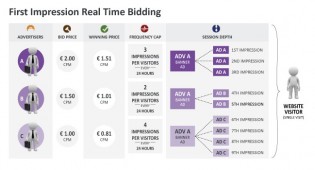RIPE NCC: 18 Months to Internet Logjam

YNOT EUROPE – In fewer than 18 months, connectivity to the internet could be severely limited as the World Wide Web runs out of IP addresses, according to RIPE NCC, the European organization that issues the numerical codes.
That doesn’t mean the information superhighway will stop working altogether, but because more and more modern devices — everything from game consoles to mobile phones to “smart cars,” with more entering the market daily — requires a unique IP address in order to connect, traffic entering at onramps could slow to a crawl by September 2011.
“The internet as we know it will no longer be able to grow,” Daniel Karrenberg, chief scientist at RIPE NCC, told CNN. “That doesn’t mean [the web] will cease to function, but entry could be limited for new devices.”
No one envisioned the four billion unique numerical addresses encompassed by Protocol Addressing Scheme version 4 (IPv4), the internet’s current system, would be too few when the web sputtered to life in the 1970s. IPv6, designed to supplant the older system, adds trillions of addresses, but businesses have been slow to adopt the technology required to make the fix work.
Although the major internet players — search engines, social networks and backbone providers — are fully IPv6 enabled, many others who rely on the web are not. Even if every relevant entity began the conversion today, Karrenberg said he thinks that might not be enough to prevent a bottleneck.
“My suspicion is too many are leaving [IPv4] too late,” he told CNN. “My impression is that while awareness of the issue is quite high, a lot of businesses are sitting on the fence. Many small businesses are waiting to see what the early adopters do; how they handle things.
“Only a quarter of European businesses are using IPV6,” he added. “The rest should be making this a priority. If they keep on lagging behind, then the internet will not be able to grow in the way it has been; the curve will flatten out.”
In addition to service providers and device manufacturers, Karrenberg said IPv6 issues — including the glitches that come with any technology upgrade — will plague content providers who fail to upgrade their networks. Though IPv6 and IPv4 are designed for compatibility, a switchover in consumer devices conceivably could leave some websites hosted on older equipment or networks literally “in the dark.”
Those websites “will lose their customers — the eyeballs — who may not be able to connect [any longer],” Karrenberg told CNN.
“I suppose I’m cautiously pessimistic,” he said. “My fear is that a significant number of businesses will be left in a position where they have to scramble to catch up. People know there is a problem, but it’s converting that knowledge into action plans, business plans, which is so important.”
Comments are closed.






